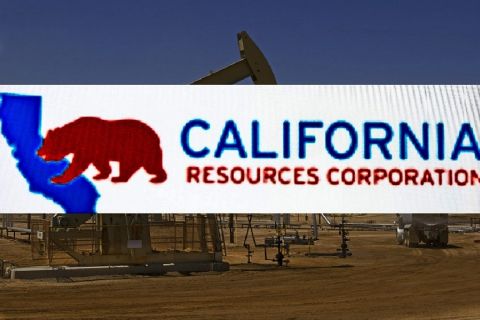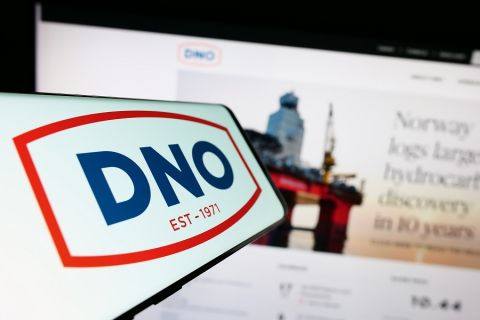
(Source: Shutterstock.com)
[Editor’s note: This report is an excerpt from the Stratas Advisors weekly Short-Term Outlook service analysis, which covers a period of eight quarters and provides monthly forecasts for crude oil, natural gas, NGL, refined products, base petrochemicals and biofuels.]
The price of Brent crude closed last week at $64.63 after a volatile week that saw prices falling to a low of $60.79 on March 23, then zigzagging through the rest of the week. The price of WTI followed a similar pattern and closed the week at $60.97 after falling to $57.76 on March 23. By the end of the week, oil prices were essentially unchanged from the previous week.
The oil market was reacting to a range of developments last week, including the blockage of the Suez Canal, and positive news associated with the U.S. economy in terms of signs of further improvement in the labor market. The good news was tempered by the upturn in COVID-19 that is happening in several states in the U.S., but even more so in Europe, including Germany and France. Additionally, on March 25 there was another round of drone and missile attacks by Yemen’s Houthi rebels on Saudi Arabia, including Aramco facilities in Ras Tanura, Rabigh, Yanbu and Jizan. The attack took place after Saudi Arabia offered a ceasefire proposal to the Houthi that included some concessions to the Houthis.
The oil market will be soon turning its attention to the next OPEC+ meeting that is scheduled for March 31 and April 1. The upcoming meetings will be important, not only because of the decisions pertaining to production volumes, but also because the meeting will provide further insight on the future guiding philosophy of Saudi Arabia with respect to the oil market.
From our perspective, the appointment of Prince Abdulaziz Bin Salman as the Energy Minister was a major event for the global markets. The Energy Minister is a paramount position, which has significant influence on decisions of OPEC. Furthermore, this position has previously never been held by a royal member, but instead by technocrats.
For decades, Saudi Arabia has been the leader of the “doves” within OPEC, a group of countries that have traditionally focused on balancing production, prices, and global economic growth. One fundamental feature of the “doves” is the awareness of the economic impact of “high” crude prices, especially in moments when the global economy is struggling. This philosophy is in contrast with the “hawks,” a group typically identified with countries like Venezuela, Nigeria, that prefer to make decisions in a more unilateral way, independently of the impact on the global economy—and long-term demand for oil.
The recent decision made by Saudi Arabia to unilaterally cut production by an additional 1 million bbl/d, on top of a rollover in OPEC’s production can be viewed as being cautious because of concerns about the stability of demand, given the ongoing issues associated with COVD-19. Alternatively, it can also be viewed as a more aggressive philosophy undertaken by Saudi Arabia to push up prices, since crude prices were already around $60 at the time of the decision, coupled with the positive news surrounding vaccines and the likelihood of the passing of the $1.9 trillion recovery/stimulus package being proposed by the Biden Administration—both, which would be supportive of future demand growth.
The result of the decision by Saudi Arabia was the price of Brent crude nearly reaching $70. A rapid increase in crude prices could hurt global economic recovery, especially with respect to major crude importers, such as India.
The upcoming April decision will provide another datapoint that indicates the future philosophy of Saudi Arabia—either a philosophy that entails a greater focus on short-term price support, and less concern about the stability of the global economy and long-term demand; or a philosophy that is more focused on the longer-term stability of the oil market. Regardless of which philosophy becomes predominant, Saudi Arabia will have significant influence on the current and future oil market. Conversely, Saudi Aramco’s philosophy and future decisions will be influenced by the actions of other actors—including those of U.S. shale producers—as well as the actions of policymakers.

About the Author:
John E. Paise, president of Stratas Advisors, is responsible for managing the research and consulting business worldwide. Prior to joining Stratas Advisors, Paisie was a partner with PFC Energy, a strategic consultancy based in Washington, D.C., where he led a global practice focused on helping clients (including IOCs, NOC, independent oil companies and governments) to understand the future market environment and competitive landscape, set an appropriate strategic direction and implement strategic initiatives. He worked more than eight years with IBM Consulting (formerly PriceWaterhouseCoopers, PwC Consulting) as an associate partner in the strategic change practice focused on the energy sector while residing in Houston, Singapore, Beijing and London.
Recommended Reading
DXP Enterprises Buys Water Service Company Kappe Associates
2024-02-06 - DXP Enterprise’s purchase of Kappe, a water and wastewater company, adds scale to DXP’s national water management profile.
ARM Energy Sells Minority Stake in Natgas Marketer to Tokyo Gas
2024-02-06 - Tokyo Gas America Ltd. purchased a stake in the new firm, ARM Energy Trading LLC, one of the largest private physical gas marketers in North America.
California Resources Corp., Aera Energy to Combine in $2.1B Merger
2024-02-07 - The announced combination between California Resources and Aera Energy comes one year after Exxon and Shell closed the sale of Aera to a German asset manager for $4 billion.
Vital Energy Again Ups Interest in Acquired Permian Assets
2024-02-06 - Vital Energy added even more working interests in Permian Basin assets acquired from Henry Energy LP last year at a purchase price discounted versus recent deals, an analyst said.
DNO Acquires Arran Field Stake, Continuing North Sea Expansion
2024-02-06 - DNO will pay $70 million for Arran Field interests held by ONE-Dyas, and up to $5 million in contingency payments if certain operational targets are met.





